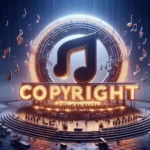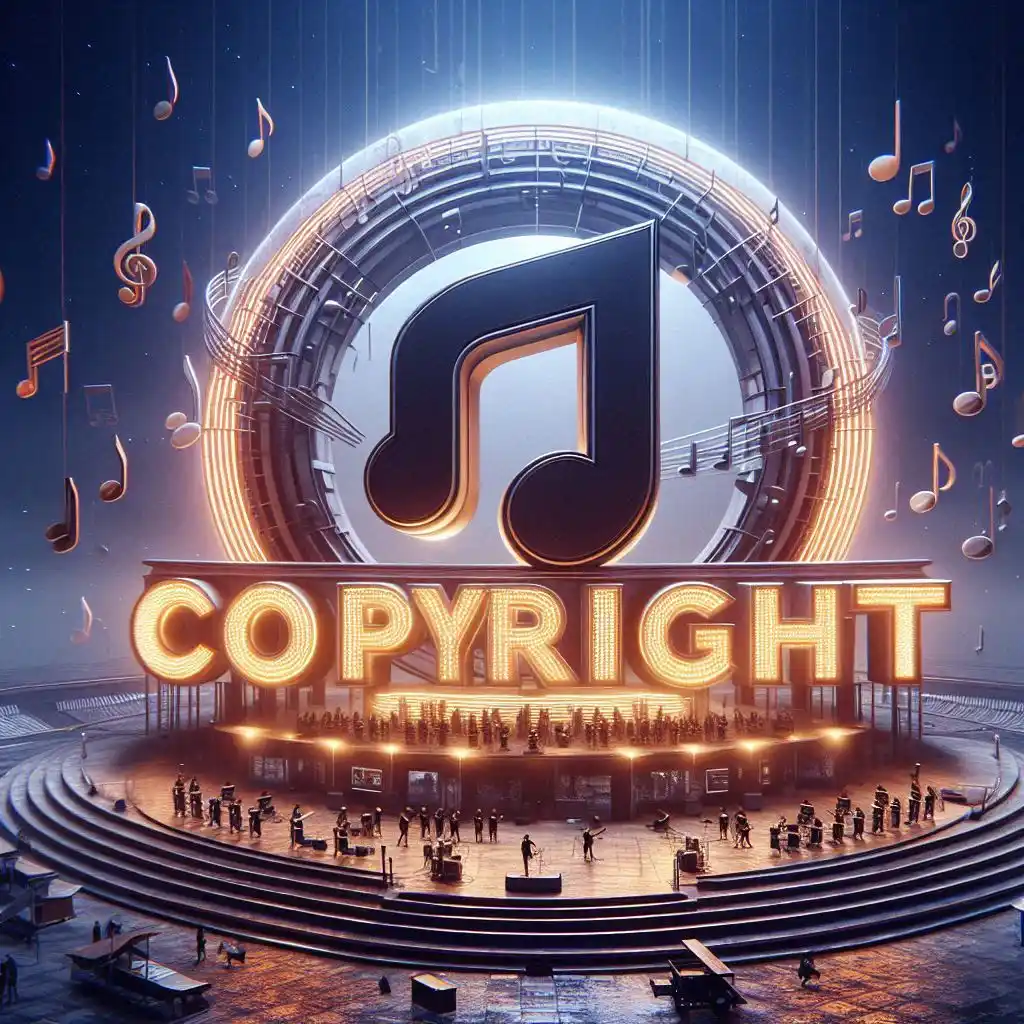
Music Copyright in 2025 – The Ultimate Protection Guide for Your Tunes
You’ve put blood, sweat, and tears (and maybe a few broken guitar strings) into your music. The last thing you need is some copycat passing your masterpiece off as their own.
So, how do you make sure your music, is safe and sound? Let’s break down how you can protect your jams.
1. Copyright It: The Musical Bouncer At The Door
Every country has its own system, but the premise is the same: register your music to get legal protection. In the U.S., that’s done with the U.S. Copyright Office. When your music is copyrighted, it’s like putting a massive “Back Off” sign for potential thieves. It means you’ve got legal ground to stand on if someone tries to pinch your tunes.
Fact: Once you’ve got that copyright, it’s good for your lifetime plus 70 years! That’s a long-lasting shield.
2. PROs: Your Music’s Personal Finance Advisor
Performance Rights Organizations (PROs) like ASCAP, BMI, or SESAC collect royalties when your music is played on radio, TV, or public places. It’s not just about cash; it’s about tracking where and when your music is played, giving you control and peace of mind.
Fact: In 2019, ASCAP collected over $1.274 billion in revenue for its artists. Not too shabby!
3. Put A Watermark On It: The Invisible Security Tag
A watermark is a soft audio mark, almost inaudible, embedded into your music. Think of it like those security tags on clothes in stores. It doesn’t affect the listening experience but proves ownership.
Fact: There are services like AudioLock that offer watermarking specifically tailored for musicians.
4. Use Digital Distributors Wisely: The Modern Gatekeepers
Platforms like DistroKid, TuneCore, and CD Baby distribute your music to streaming services and stores. They’re not just for getting your tracks on Spotify; they timestamp and create a digital record of your uploads.
Fact: DistroKid, for example, plants your music on 150+ streaming platforms. That’s a LOT of eyes making sure your music stays yours.
5. Timestamp Everything: Your Music’s Personal Diary
Every time you create something, email a copy to yourself or save it on a cloud with a timestamp. It’s a low-tech way of proving when you made what.
Fact: The email system automatically dates and timestamps, making it a handy (and free) way to keep a chronological record.
6. Collaborate Wisely: No More Backstabbing Drama
When working with others, have clear contracts in place. Decide who owns what percentage of the song. Trust is great, but a signed document is better.
Fact: Many a band or artist duo have imploded over ownership disputes. Don’t be a sad rock-n-roll cliché.
7. Share Wisely: No More Unwanted Surprises
Be cautious when sending demos or tracks to industry folks or even friends. If you must share, low-bitrate versions make it harder to reproduce with quality.
Fact: A track in 128 kbps might be okay for casual listening but isn’t great for professional use. It’s like sending photos in low-res – okay for a peek, but not for a billboard.
8. Use Music Identification Services: Your Tune Detective
Shazam isn’t just for finding out the name of that catchy song in the coffee shop. It can help protect your music. When your songs are in their database, they’re being monitored.
Fact: Shazam has more than 200 million active users monthly. That’s a vast network keeping tabs on tunes.
9. Get To Know Creative Commons: It’s Not Just for Geeks
Creative Commons licenses let you decide how people can use your music. Want to allow remixes but not commercial use? There’s a license for that.
Fact: Creative Commons licenses are used by artists like Nine Inch Nails and Radiohead. If it’s good enough for them…
10. Stay Educated: Knowledge is Your Shield
The music industry is ever-changing. Laws evolve. New platforms emerge. Stay updated. Websites like Music Business Worldwide or the Future of Music Coalition can help.
Fact: The more you know, the harder it becomes for anyone to pull a fast one on you.
11. Unique Metadata: Labeling for the Digital Age
Metadata is like the DNA of your song: title, artist name, song length, and other specifics that describe your music. Embedding unique metadata ensures that when your song is uploaded or shared, all the essential info travels with it. It helps in accurate tracking and royalty payments.
Fact: A simple error in metadata can redirect your royalties. Always double-check your details.
12. Digital Fingerprinting: Forensics for Your Tunes
Platforms like YouTube use digital fingerprinting to identify copyrighted music in videos. Once your music has a digital fingerprint, systems can automatically detect its use and flag unauthorized uploads.
Fact: YouTube’s Content ID system scans over 100 years of video every day for copyrighted material!
13. Trademark Your Band or Artist Name
If you’ve got a unique artist or band name and you’re starting to get recognized, consider trademarking it. It gives you exclusive rights to that name, ensuring no one else can confuse fans or profit off your brand.
Fact: Once you have a trademark, it can last indefinitely as long as you renew it and use it in commerce.
14. Consider a Publisher
Music publishers help manage song copyrights, promote songs to musicians and anyone else who might use music, license songs as needed, and collect licensing fees. They’re like your music agent!
Fact: Big publishers have clout, which can be a big advantage if someone is playing hardball with your music rights.
15. Safe Storage: Don’t Put All Your Eggs in One Basket
Always have multiple backup copies of your music in different places. Hard drives, cloud storage, and even physical copies like CDs. If one gets compromised, you’ll have others safe and sound.
Fact: A survey showed that 1 in 3 people has suffered data loss. Don’t be part of that statistic.
16. Use Non-Repudiation Services
Non-repudiation is a way to verify that a sender is genuinely who they claim to be. Services like Registered Mail or certain email plugins offer this. When sending your music, this ensures the recipient can’t deny receiving it.
Fact: It’s like sending a letter with a signed receipt. Only digital and way cooler.
17. Be Wary of Unsolicited Requests
Got an email out of the blue from someone wanting to use your music? Do your homework. Scammers abound, and the last thing you want is to get conned.
Fact: If it sounds too good to be true, trust your gut and dig a bit deeper.
18. Register with SoundExchange
While PROs handle many royalty collections, SoundExchange specifically manages digital performance royalties for webcasts like internet radio.
Fact: They’ve distributed billions to artists since their inception.
19. Keep Abreast of Emerging Tech
Blockchain, the technology behind cryptocurrencies, is making waves in music protection. It promises transparent and direct transactions between listeners and artists.
Fact: Imogen Heap, a Grammy-winning artist, has been a vocal advocate for using blockchain in music.
20. Keep Your Domain
Registering your band or artist name as a domain ensures that you have control over your brand online. It’s a small investment but vital in the digital age.
Fact: Over 350.7 million domain names are registered, and you don’t want someone else snagging yours.
21. Network, Network, Network!
The more people in the industry you know, the more eyes and ears you have out there. They can tip you off if they hear or see something fishy involving your music.
Fact: A strong network is often cited as the top factor in many artists’ success.
22. Engage with Your Fanbase
Your fans aren’t just there for support; they’re an excellent resource for monitoring. They’ll often be the first to spot if someone else is using or abusing your music and will alert you.
Fact: Two (or two thousand) heads are better than one!
23. Be Open but Cautious with Remixes
While allowing remixes can spread your music and attract a broader audience, ensure you’re clear about permissions. Platforms like ccMixter can facilitate collaboration with clear terms.
Fact: Moby released stems for 11 tracks in 2005 for free, resulting in thousands of remixes and a massive PR boost.
24. Attend Music Conferences
Events like South by Southwest (SXSW) or the ASCAP Expo offer sessions on music rights and protection. Plus, you can network!
Fact: SXSW began in 1987 and has become one of the largest music festivals globally, blending industry expertise with epic performances.
25. Hire a Music Lawyer for Big Decisions
If you’re signing a contract or dealing with a significant licensing agreement, it might be worth hiring a lawyer who specializes in music. They know the ins and outs and can prevent you from signing away more than you intended.
Fact: Music law is a niche but vital field, ensuring artists’ rights are protected in the complicated maze of the music industry.
Music is your baby. Protecting it might seem like a headache, but it’s worth every bit of effort. It’s about peace of mind and ensuring you get the credit (and cash!) for your art. Take these steps, sing your heart out, and sleep easy knowing your musical masterpieces are safe.
